Prigozhin’s departure leaves Wagner’s future up in the air
The end of the rebellion has raised questions about what will happen to the mercenary group, which acts as the Kremlin’s unofficial armed wing in countries such as Mali and the Central African Republic
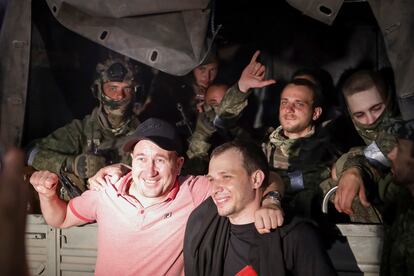
The end of Yevgeny Prigozhin’s rebellion against the leadership of the Russian Ministry of Defense leaves many questions unanswered. Chief among them is what will happen to his mercenary organization Wagner Group, which has played a leading role in Russia’s war in Ukraine, and also acts as the Kremlin’s unofficial armed wing abroad. Prigozhin started the revolt with his mercenaries to retain some power and control of Wagner. But although the shadowy businessman remains silent about the deal that put an end to the rebellion, the Kremlin has maintained that the Wagner mercenaries who did not participate in the attempted coup will be able to join the ranks of the regular army. This would mean that the Wagner Group in Russia would be dismantled, an outcome that the Russian Defense Minister Sergei Shoigu — who has a longstanding rivalry with Prigozhin — has wanted to achieve for some time. Shoigu was responsible for pushing the new regulations that require that “volunteer regiments” are integrated into the army by contract — a move that gives the Ministry of Defense exclusive power over the war. These measures, which were to be applied in July, precipitated the Prigozhin rebellion, according to several analysts.
It is unknown, however, how many mercenaries will transition to the regular ranks of the army, and if they do, who will lead them. Another unknown is what will happen to the Wagner Group in countries such as Sudan, Libya, Mali and the Central African Republic, where the mercenaries not only serve regimes linked to Moscow, but also act to ensure Russian interests in companies and rare earth mines and deposits — a business that brings enormous benefits to Prigozhin, according to a Western intelligence source.
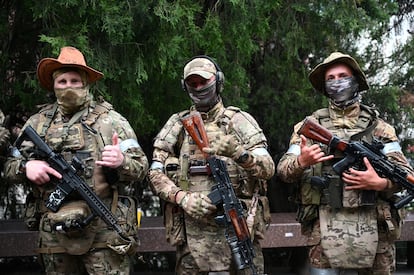
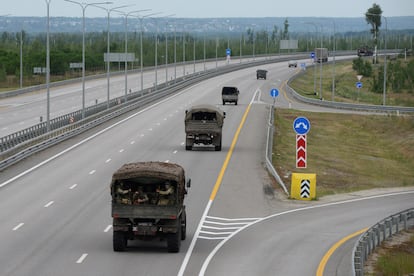
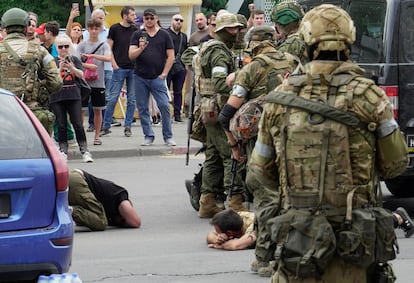
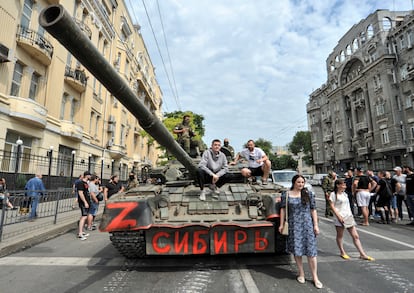
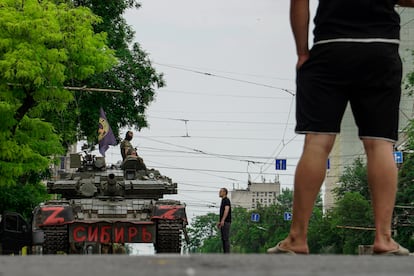
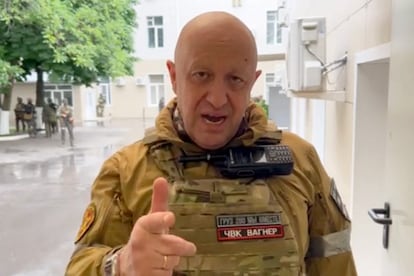
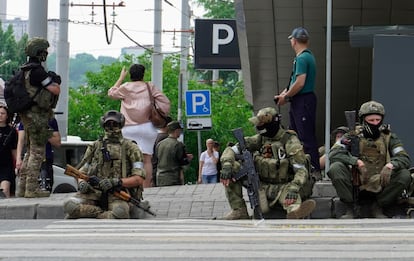
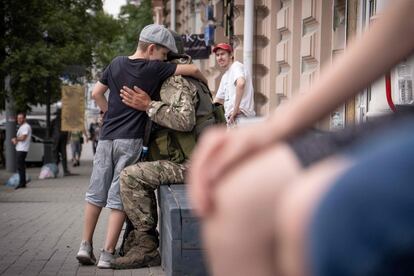

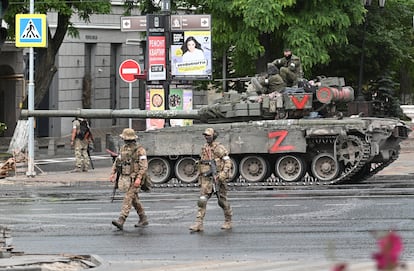
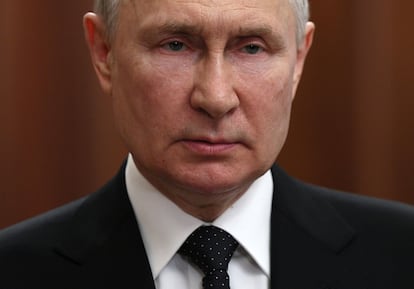
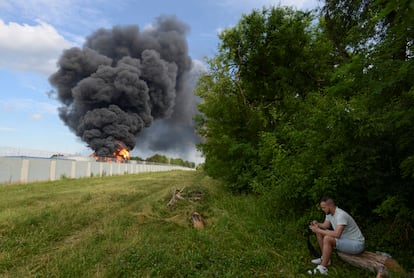
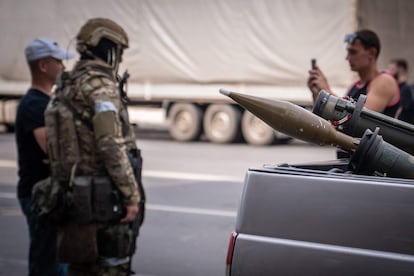
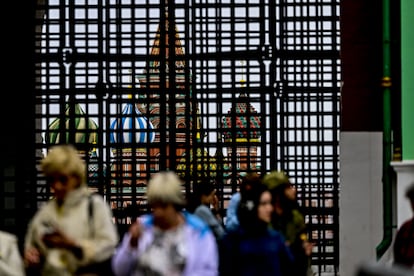
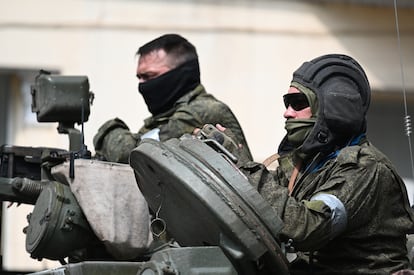
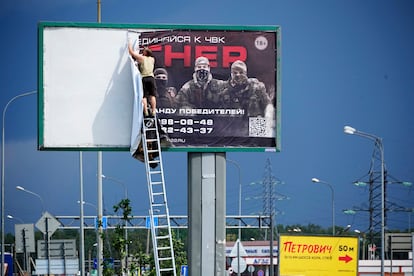
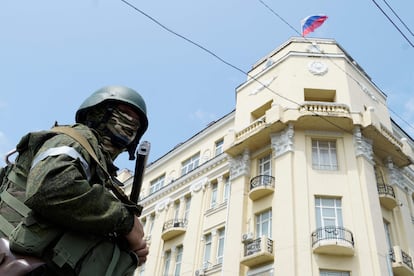
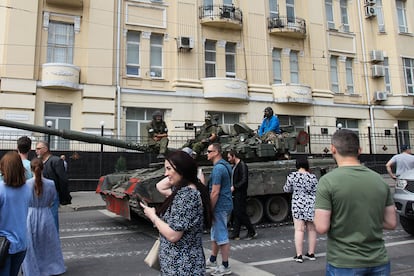
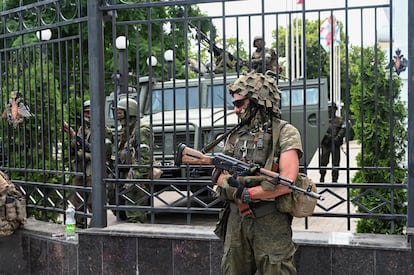
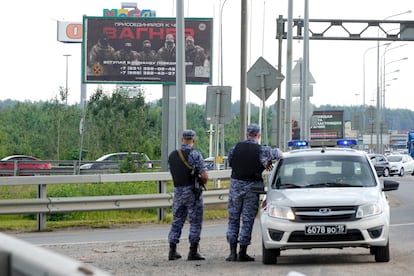
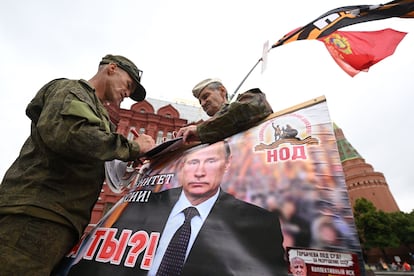
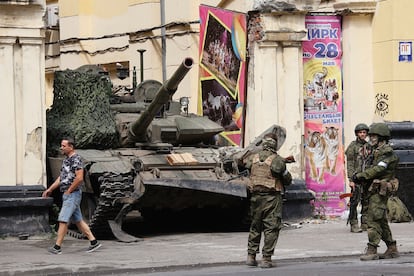
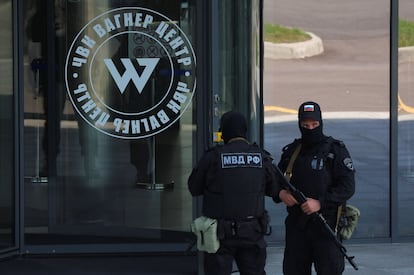
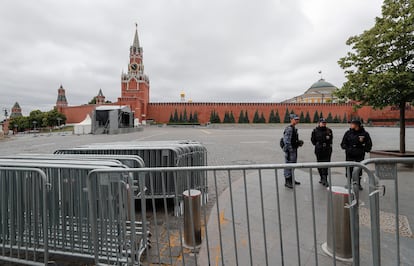
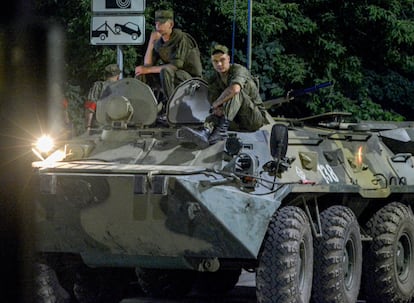
“It’s hard to think that Wagner could disappear overnight in Africa,” says Enrica Picco, Crisis Group’s Central Africa director, from Nairobi. “Russia has created a very powerful tool of influence on the African continent, as well as a network of trafficking and exploitation of resources.” “[After the rebellion] Wagner and Russia in Africa has an image problem,” continues the researcher, “but the regimes they support are not going to take part in the dispute. What interests them most is that nothing changes with respect to the protection they receive.”
Russia’s full-scale invasion of Ukraine has spawned a plethora of militias. But Wagner is not like any other. The mercenary group has spearheaded some of Russia’s most effective offensives in Ukraine, with Prigozhin rising in stature and power with brutal tactics and his decision to recruit from Russian prisons. After the capture of Bakhmut and his subsequent withdrawal to leave the city in the hands of the army, Shoigu has tried to subdue the group. “Prigozhin may have crossed a line, but it’s still too early to say it’s a complete break with Vladimir Putin,” says Angela Stent, a professor at Georgetown University. “I don’t think the Wagner organization as such is going to collapse,” says the expert on Russia and Foreign Policy in a talk organized by The Brookings Institution.
Illegal mercenaries
The Wagner group (officially PMC Wagner) was first identified in 2014, when it went into combat to support separatist forces in eastern Ukraine, who were driven, supported and fueled by the Kremlin. It was a secret organization with around 5,000 mercenaries that operated in countries in the Middle East and Africa. Wagner’s mercenaries have been the secret soldiers of the Putin regime in Africa, the Middle East and even Venezuela, operating in countries where Russia cannot officially be a regular force. In the case of the conflict in Syria, it’s also as a way for the Kremlin to get around reporting the casualty count.
Until the war in Ukraine, the Kremlin had never recognized its activity because in Russia, it is illegal to be a mercenary and fighting abroad is punishable by up to 16 years in prison. In Ukraine, the Wagner Group has diversified their activities and also provide military training, consulting and intelligence operations. Working as “instructors” — as happened in Sudan — is allowed because it is considered “advice.”
Wagner’s strength has been growing considerably. A few months ago, the U.K. Ministry of Defense estimated the group had around 50,000 fighters in Ukraine. In September last year, Prigozhin acknowledged that he was behind Wagner, which registered as a company and opened a new headquarters in St. Petersburg. On Saturday, Russian authorities reported that they had found dozens of gold bars, blocks of white powder, weapons and false passports in these offices. Wagner has gone from being an organization that supposedly does not exist to deploying recruitment advertising — on Saturday, in the midst of the rebellion, Russian authorities began to remove some of these ads as well as Wagner merchandising products.
Russia’s informal armed wing in Africa
If it is difficult to predict Wagner’s future within Russia, it is more difficult to imagine that the private security group will be dismantled outside its borders, especially on the African continent. There, Moscow has developed a new diplomatic rapprochement in the last five years, underpinned precisely by the presence of mercenaries on the ground in volatile contexts. A good example of the links between Wagner’s soldiers and the Kremlin is the case of the Central African Republic, which has been struggling with the violence between Christian and Muslim militias since 2013. On February 25, the European Union signed a list of sanctions against individuals and companies linked to Wagner in Africa for their role in human rights violation. Among those sanctioned by Brussels was Dimitry Sytii, director of the Russian House cultural center, which is dependent on Moscow. He also has a “prominent” role in Wagner Group’s structure in the country and a close relationship with Prigozhin.
As in most African countries where Russian mercenaries have been present, Wagner’s name does not appear beyond the banners of pro-Russian demonstrations or in local media. The Central African Republic is a good example of this framework. In this country, security services are provided via the company Sewa Security Services, in parallel to the exploitation of mineral resources by firms such as Lobaye Invest and Diamville. While this is all under the shadow of Wagner, officially it is done through companies registered in the Central African Republic. The same goes for gold in Sudan, where Wagner operates via the Khartoum-based company Meroe Gold.
In the Sahel region, Mali is the mainstay of Wagner’s presence. The mercenaries set out for Mali — practically at the same time as the start of the large-scale Russian offensive in Ukraine — without the secrecy with which they did before in other African countries. In Mali, the Russian private security company has the support of the coup commanded by Assimi Goïta and a large part of the population. Wagner, preceded by the success of its campaigns in Ukraine and Syria, responded at the end of 2021 to Mali’s call to help in the fight against the jihadists. Prigozhin’s soldiers have become more powerful, while France, faced with the disaffection of the local population, withdrew its troops and the United Nations is also considering a withdrawal. This is despite reports linking the Wagner mercenaries to the death of 500 civilians in an anti-jihadist operation carried out in the center of the country.
Sign up for our weekly newsletter to get more English-language news coverage from EL PAÍS USA Edition
Tu suscripción se está usando en otro dispositivo
¿Quieres añadir otro usuario a tu suscripción?
Si continúas leyendo en este dispositivo, no se podrá leer en el otro.
FlechaTu suscripción se está usando en otro dispositivo y solo puedes acceder a EL PAÍS desde un dispositivo a la vez.
Si quieres compartir tu cuenta, cambia tu suscripción a la modalidad Premium, así podrás añadir otro usuario. Cada uno accederá con su propia cuenta de email, lo que os permitirá personalizar vuestra experiencia en EL PAÍS.
¿Tienes una suscripción de empresa? Accede aquí para contratar más cuentas.
En el caso de no saber quién está usando tu cuenta, te recomendamos cambiar tu contraseña aquí.
Si decides continuar compartiendo tu cuenta, este mensaje se mostrará en tu dispositivo y en el de la otra persona que está usando tu cuenta de forma indefinida, afectando a tu experiencia de lectura. Puedes consultar aquí los términos y condiciones de la suscripción digital.








































